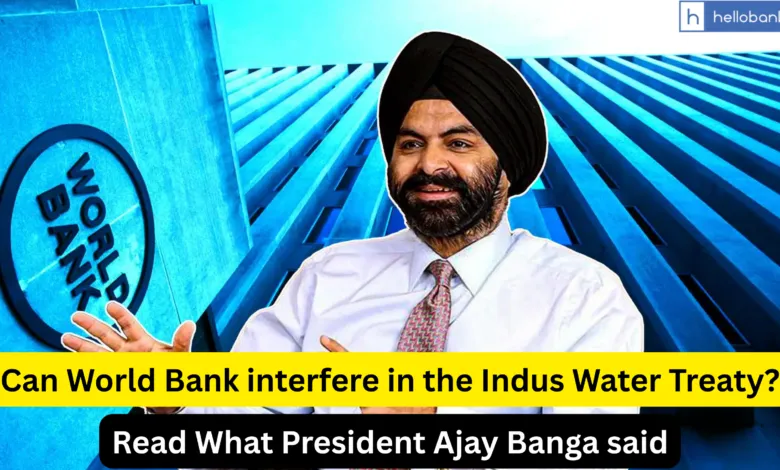Can World Bank interfere in the Indus Water Treaty? Read What President Ajay Banga said

| ➡️ Get instant news updates on Whatsapp. Click here to join our Whatsapp Group. |
The Indus Water Treaty is in question amid ongoing conflict between India and Pakistan. India has decided to suspend the Indus Water Treaty. Amidst this, World Bank President has made important announcement regarding the role of Bank in managing this.
World Bank President Ajay Banga made it clear on Friday that the World Bank has a very limited role in the Indus Waters Treaty. He said that the Bank acts only as a facilitator, not as a decision-maker or enforcer.
“We have no role to play beyond being a facilitator,” Banga said. “There’s a lot of talk in the media that the World Bank will step in and fix the issue — but that’s not true at all.”
Background of the Indus Waters Treaty
The Indus Waters Treaty was signed in 1960 with the help of the World Bank. It is a key agreement between India and Pakistan that governs how the rivers in the Indus system are shared between the two countries.
Recently, this treaty came into the spotlight after a terror attack in Pahalgam, Jammu & Kashmir, which killed 26 civilians. Following the attack, India announced that it is putting the treaty “in abeyance,” meaning it is being paused but not officially canceled.
The Treaty Is Not Suspended — Just on Hold
Ajay Banga explained that India has not completely suspended the treaty. Instead, the Indian government is keeping it on hold, which is technically called “in abeyance.”
He also highlighted an important fact: the original treaty does not include any option for suspension. So legally, the treaty can either continue or be replaced by a new one, but only if both India and Pakistan agree to that change.
“The way the treaty was written, it can’t be suspended — it either stays in place or gets replaced by something else. But that change can only happen if both countries agree,” Banga said.
What the World Bank Can Actually Do
Banga stressed that the World Bank is not a decision-maker in this situation. Its job is to help when the two countries disagree.
Here’s what the World Bank can do:
- Act as a go-between or neutral party
- Help find a neutral expert or an arbitration panel if there’s a dispute
- Facilitate discussions, but not make or enforce decisions
So, while the treaty was originally signed with the World Bank’s help, it has no authority to fix issues or step in on its own.
